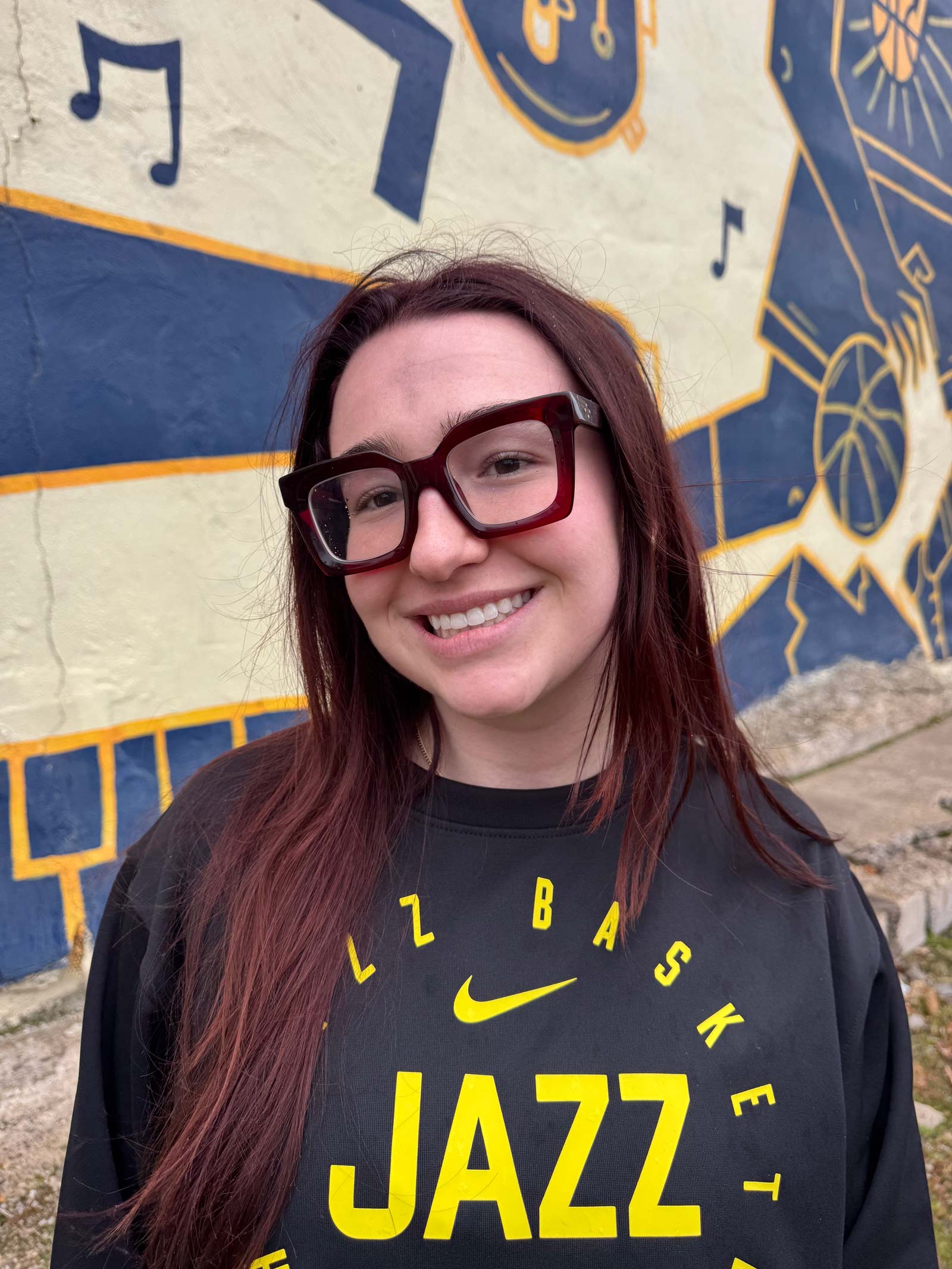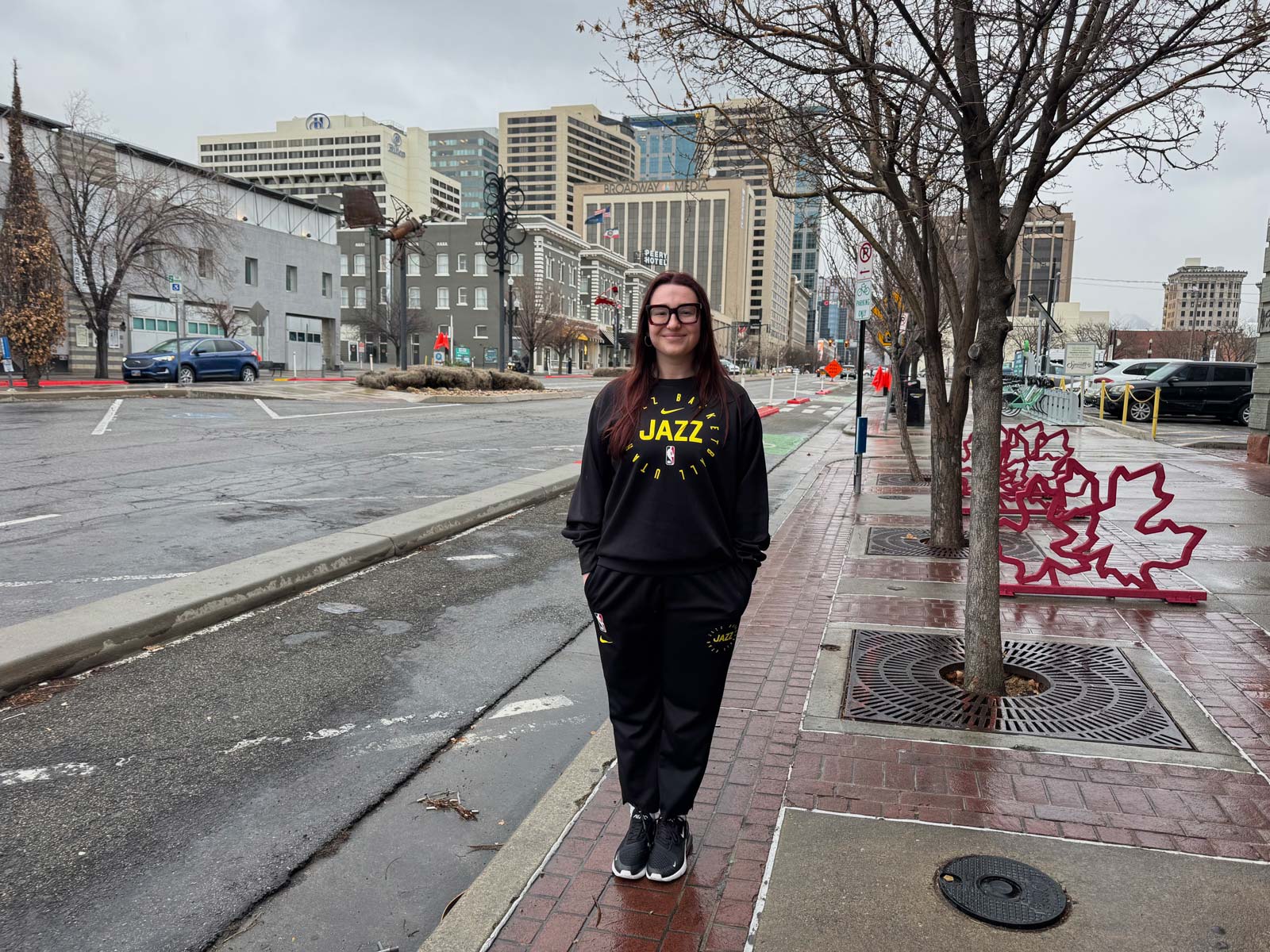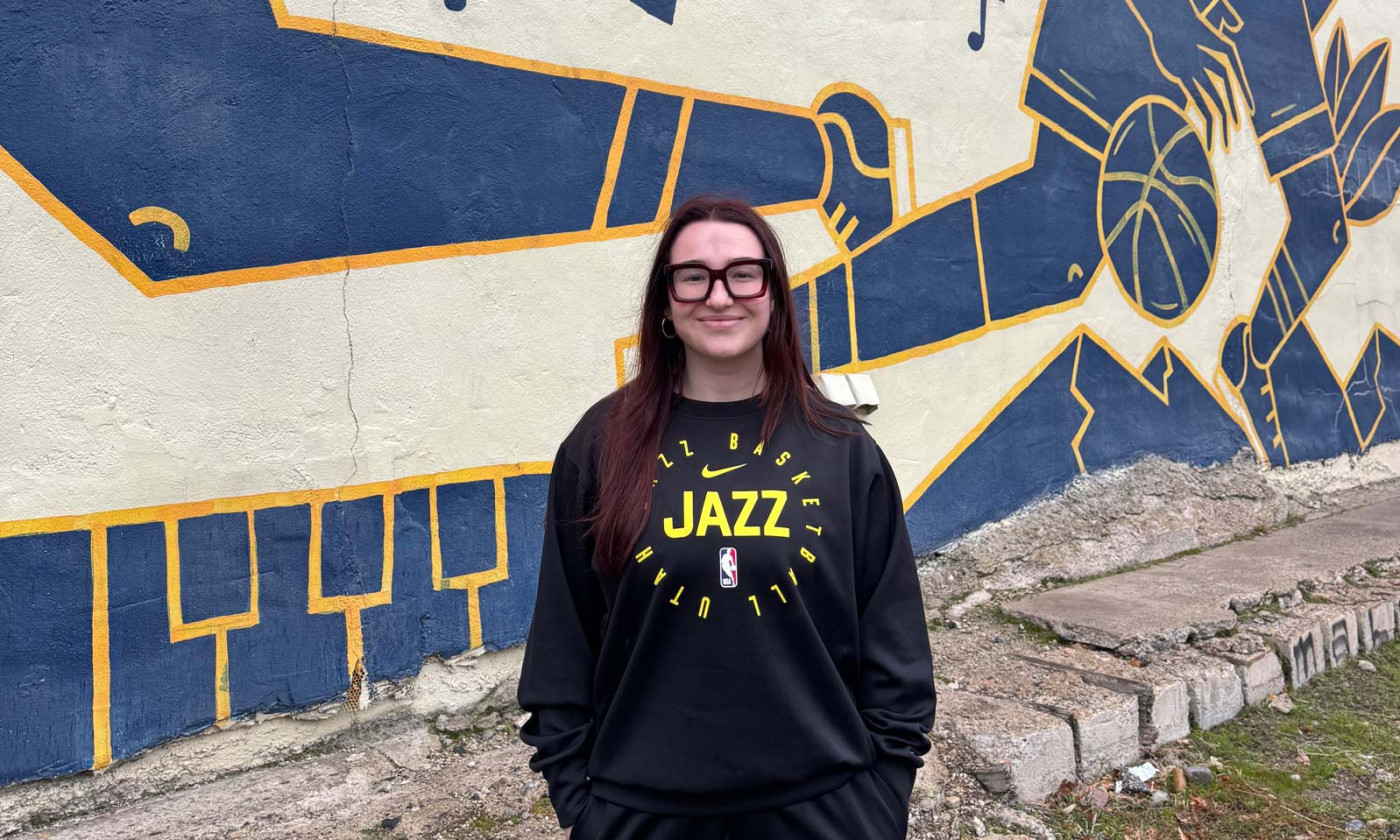This story is jointly published by nonprofits Amplify Utah and The Salt Lake Tribune to elevate diverse perspectives in local media through student journalism.
During a heated game recently, Utah Jazz center Walker Kessler jumped above the rim to block a shot. The 7-foot Kessler landed on the court as the referee’s whistle blew.
The ref signaled goaltending. The Delta Center crowd booed and screamed at the official.
Madeline Mirrione, a Utah Jazz team attendant, recalls being upset at the call — a reaction that caught the attention of a fan with a full head of gray hair and a booming voice seated close to the court.
“Do you know what goaltending is?” the man asked her.
“Yeah,” Mirrione said.
The man continued: “That’s when they give them the points because they shouldn't have blocked the shot. It was an illegal blocked shot.”
“I know,” Mirrione said, even though she was thinking of a nastier response.
Things like that happen often, Mirrione said. She doesn’t think women employees of sports organizations should have to put up with “fansplaining” as part of the job, but she said she isn’t deep enough into her career to say what she really wants to say to fans like this.
She’s confident, though, that someday she will be.
 “Madeline Mirrione in Utah Jazz gear. Photo by Ava Hart.”
“Madeline Mirrione in Utah Jazz gear. Photo by Ava Hart.”
How her love of sports grew
Growing up in South Jordan, in the Salt Lake City suburs, Mirrione often spent time watching sports with her family.
Her dad was from New York, and the family cheered for teams from that city. “Anytime the Jets, Mets or the Islanders were playing, we were always surrounding the TV watching,” she said.
It wasn’t until the fifth grade that her love for sports solidified.
Her school had entered a contest where a Utah Jazz player would read a book to the students. The contest, “Be a Team Player – Read!”, is a large outreach program for the Jazz. Mirrione isn’t sure why this specific experience cemented her passion for sports, but it did — even though the school didn’t win, and the player never came.
Mirrione didn’t play sports, but her interest as a spectator carried on, and blossomed even more right before she was preparing to attend the University of Utah.
“I was getting ready to go to college and I was like, ‘What if I did a career in sports?’” Mirrione said.
And that’s what she began to do.
From the minors to the NBA
Mirrione started her sports career as a team attendant with the Utah Stars, in the G League, the NBA’s minor league, designed to prepare players for the next level of their basketball careers. She was promoted to team attendant for the Jazz in her second season.
As a team attendant, Mirrione assists players and coaches, prepares and organizes the locker rooms, and maintains equipment.
Shortly after arriving at the Jazz, Mirrione realized she needed a job during the off-season. She was hired by Real Salt Lake, Utah’s Major League Soccer franchise, as a game day operations intern. Her connections with RSL helped her get a position as a group sales intern for the Utah Royals, the National Women’s Soccer League team owned by the same group that owns RSL.
Mirrione, now 20, said she relishes the opportunity to be around people who exemplify the sort of confidence she is hoping to have in her own life.
“Athletes really do think that they are the hottest people on the planet,” she said. “They are so confident, and I think that we all could kind of take a page out of that book.”
One thing she’s confident about already is her ability to handle a lot of responsibilities. She still holds her jobs with all three teams, while being a full-time student of the U.
“Maddy is a go-getter,” said Keagan Robb, Mirrione’s boss at RSL. “She is actively looking for ways to do her job to the best of her abilities, and this attitude has been a positive example and influence to the team’s overall attitude and productivity.”
 “Madeline Mirrione in Salt Lake City, UT, home of the Utah Jazz and the University of Utah. Photo by Ava Hart.”
“Madeline Mirrione in Salt Lake City, UT, home of the Utah Jazz and the University of Utah. Photo by Ava Hart.”
Tackling hurtful stereotypes
Mirrione said she would love it if more people were focused, as Robb is, on her abilities and aptitude. However, women employees of sports organizations often face stereotypes questioning why they are even interested in doing their jobs.
Mikell Rasmussen, a Jazz coworker, said one assumption is particularly hurtful. “We aren’t there to hook up with NBA players. We truly like the sport or want a future career in sports,” she said. “Being friendly doesn’t always mean we are flirting.”
Mirrione said it is challenging to get past comments people make about her reasons for working in sports. And it is annoying to have to hear men — it’s pretty much always men — explaining things she already knows, and often knows better than they do.
“I’m really polite to their faces, and I kind of play into it, which I know I shouldn’t,” she said.
She sometimes even thanks the fans for explaining things that she already knew.
“And then,” she said, “I go in a back room, and I scream at a wall.”
Mirrione said she would like to be done screaming at walls. But she also knows that, for now, she can only take one step at a time.
At the next game, perhaps, that step will be to stop playing into the stereotypes. Maybe she’ll be a little less polite, and won’t just smile and shrug it off when people suggest that the reason she is there isn’t about sports.
“I think it’s a slow climb, but I do think we’re seeing better progress,” Mirrione said.
Ava Hart wrote this story as a journalism student at the University of Utah for a capstone course focused on women’s sports. It is published as part of a collaborative including nonprofits Amplify Utah and The Salt Lake Tribune.





